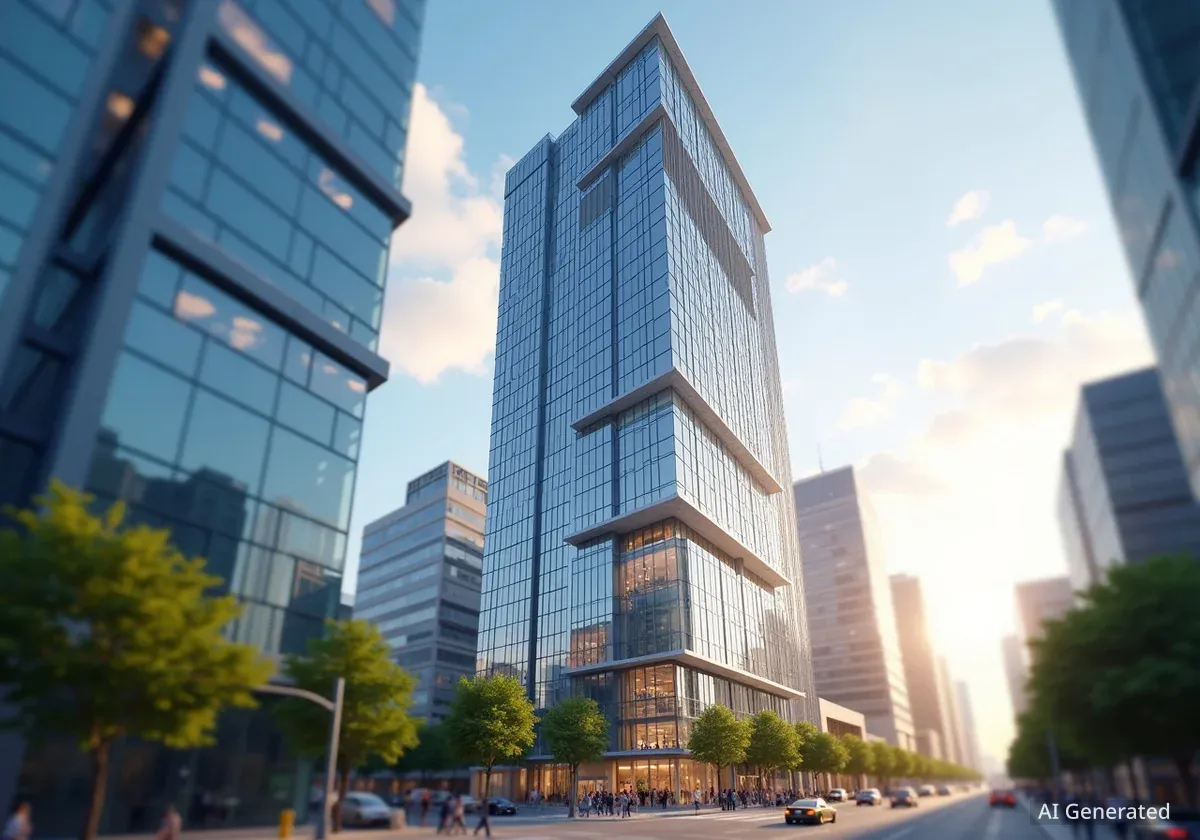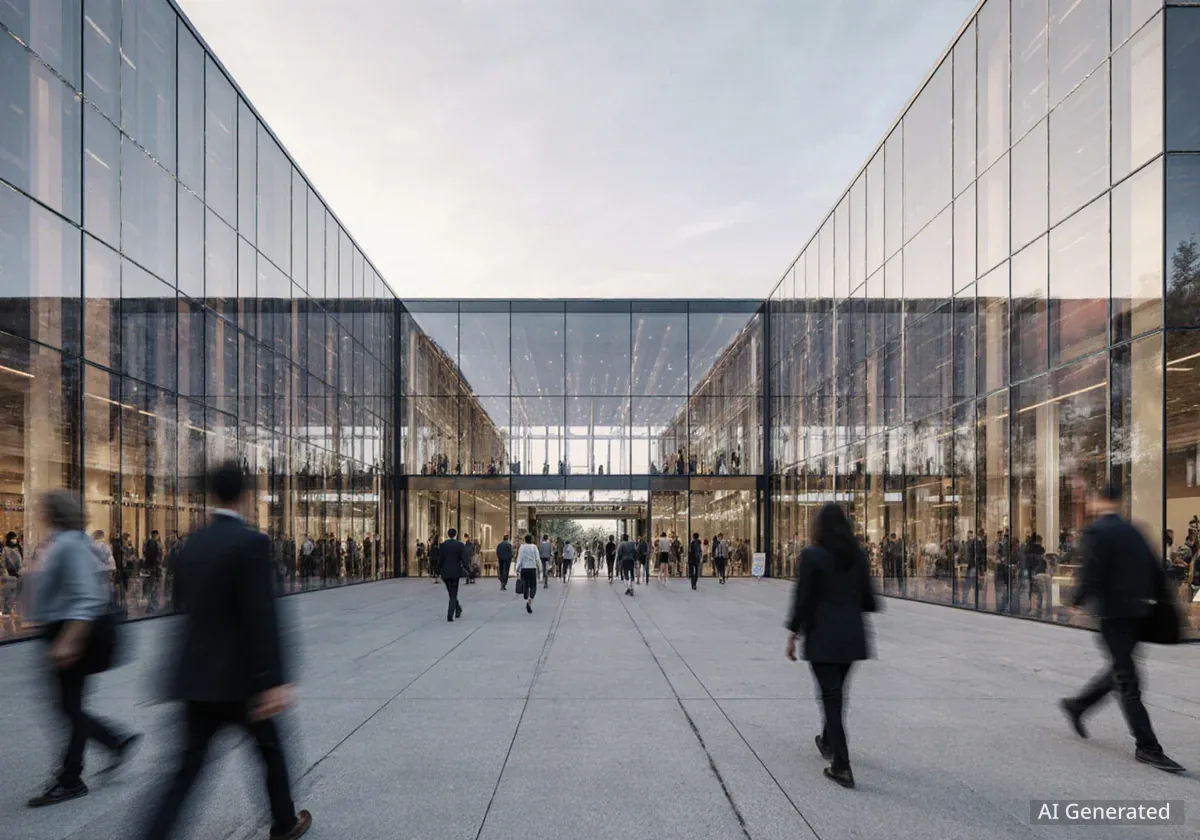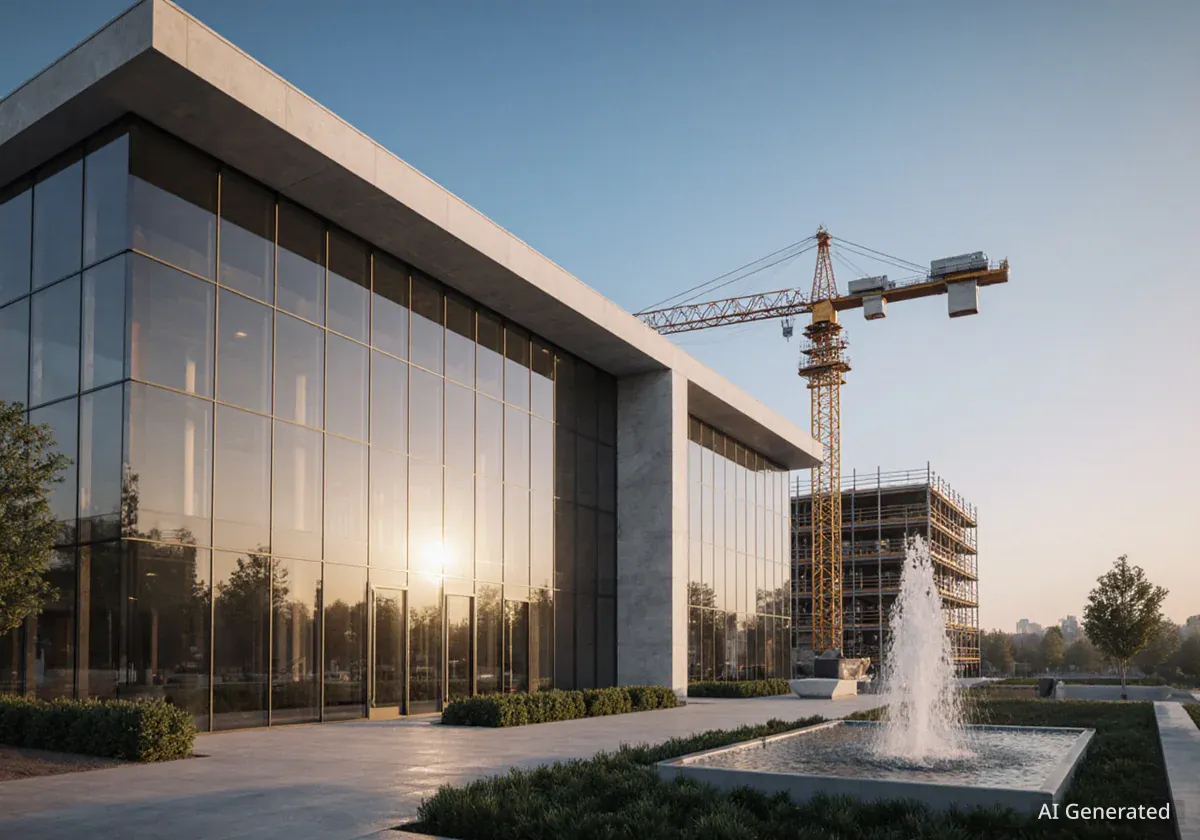Global technology firm Innovate Corp has officially announced its selection of Austin, Texas, for its new corporate headquarters. The project represents a $750 million investment in the city and is expected to create approximately 5,000 new jobs over the next decade, according to a company statement released Tuesday.
The development will be located on a 50-acre site in North Austin and will include over one million square feet of office space. Construction is scheduled to begin in the first quarter of next year, with the first phase expected to be operational by late 2027.
Key Takeaways
- Innovate Corp will invest $750 million to build its new global headquarters in Austin, Texas.
- The project is projected to create 5,000 new jobs in fields such as software engineering, research, and corporate operations.
- The new campus will cover 50 acres in North Austin with over 1 million square feet of office space.
- The move is expected to have a significant impact on Austin's economy and commercial real estate market.
Details of the Austin Expansion
Innovate Corp's decision concludes a year-long search that involved evaluations of several major U.S. metropolitan areas. The company cited Austin's vibrant technology ecosystem, skilled workforce, and collaborative business environment as primary factors in its final selection.
The new headquarters will consolidate several of the company's divisions, which are currently spread across multiple locations. According to company officials, this move is part of a broader strategy to foster greater collaboration and accelerate innovation.
"Austin provides the ideal environment for our next chapter of growth," said Innovate Corp CEO, Dr. Alistair Finch. "We are excited to tap into the city's incredible talent pool and contribute to a community that is at the forefront of technological advancement."
Job Creation and Economic Impact
The 5,000 new positions will span a range of roles, with a heavy emphasis on high-skilled tech jobs. These include software development, artificial intelligence research, data science, and cybersecurity. The company also plans to hire for corporate functions such as finance, marketing, and human resources.
Local officials project that the economic benefit will extend beyond direct employment. The construction phase alone is expected to generate hundreds of temporary jobs. Once operational, the influx of employees is anticipated to boost local businesses, including retail, hospitality, and service industries.
Project by the Numbers
- Total Investment: $750 Million
- New Jobs: 5,000 over 10 years
- Campus Size: 50 Acres
- Office Space: 1.2 Million Square Feet
- Construction Start: Q1 2025
- Phase 1 Completion: Q4 2027
Impact on Austin's Real Estate Market
The announcement is poised to have a substantial effect on both the commercial and residential real estate markets in Austin. The development of a major corporate campus in North Austin is expected to drive demand for office space in the surrounding area, potentially influencing rental rates and property values.
Real estate analysts note that large corporate relocations often create a ripple effect. The demand for housing is expected to increase as new employees move to the city, putting further pressure on an already competitive market. This could lead to rising home prices and rental costs, particularly in neighborhoods with convenient access to the new campus.
Austin's Growing Tech Hub
Austin has steadily grown into a major technology center over the past two decades, earning the nickname "Silicon Hills." The city is home to major offices for companies like Apple, Google, and Oracle. The presence of the University of Texas at Austin provides a consistent pipeline of engineering and computer science talent, making it an attractive location for tech firms looking to expand.
Some experts predict the Innovate Corp headquarters will further solidify Austin's reputation as a top-tier tech hub, attracting additional investment and talent. However, it also raises questions about infrastructure and affordability, challenges the city continues to manage amidst its rapid growth.
City and State Collaboration
The deal was secured through a collaborative effort between Innovate Corp, the City of Austin, and the State of Texas. While the full details of the incentive package have not been made public, it reportedly includes performance-based tax abatements tied to job creation and investment milestones.
Austin's Mayor, Veronica Soto, praised the partnership, highlighting the long-term benefits for the city.
"This is more than just a corporate headquarters; it's an investment in Austin's future," Mayor Soto stated. "Innovate Corp's commitment to creating thousands of quality jobs will provide incredible opportunities for our residents and strengthen our position as a global leader in innovation."
The state's economic development office also played a crucial role. According to a press release, the state offered incentives from the Texas Enterprise Fund, a program designed to attract major business investments. The final agreement requires Innovate Corp to meet specific hiring and wage targets to receive the full benefits.
Future Outlook and Community Engagement
Innovate Corp has stated its intention to be an active member of the Austin community. The company announced plans to partner with local universities and community colleges to develop workforce training programs. These initiatives aim to create pathways for local residents to gain the skills needed for jobs at the new headquarters.
The company also plans to incorporate sustainable design principles into its new campus. Plans include green spaces, energy-efficient buildings, and infrastructure to support public transportation and cycling, aligning with Austin's environmental goals.
As construction begins next year, all eyes will be on how this major development reshapes the economic and social landscape of North Austin. The project represents a significant milestone for the city, reinforcing its status as a premier destination for the technology industry while also presenting new challenges related to growth and affordability.





